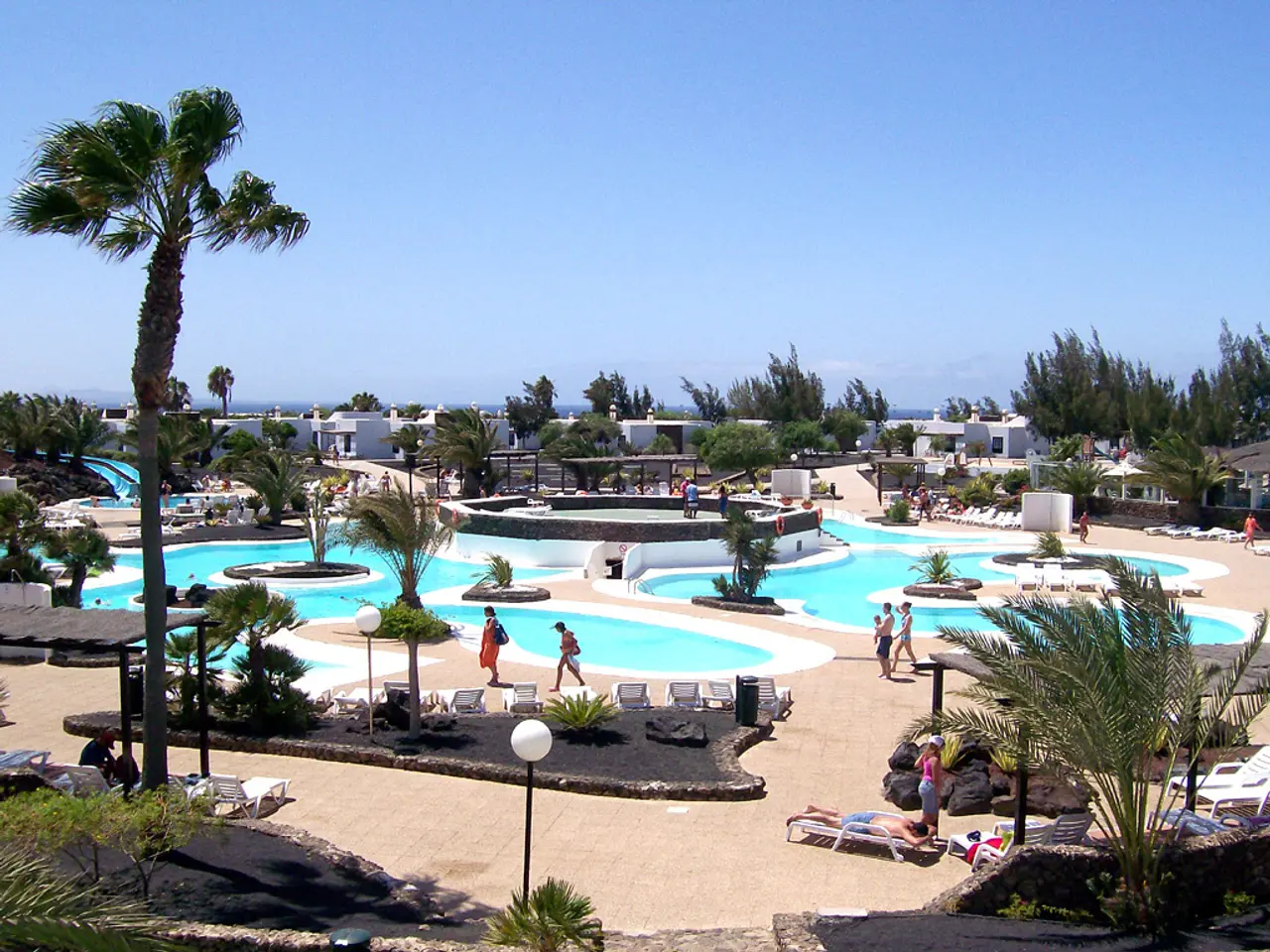Experiences Recounted by Russian Vacationers at Recently Opened North Korean Ski Resort
In a surprising turn of events, North Korea's newly opened coastal tourist zone, Wonsan-Kalma, has temporarily closed its doors to foreign tourists following the visit of Russian Foreign Minister Sergei Lavrov.
The grand Wonsan-Kalma Coastal Tourist Area, a major tourism destination on North Korea's east coast, was unveiled in late June 2025. The resort, which can accommodate nearly 20,000 guests, boasts a long white-sand beach and modern amenities. However, just a month later, foreign tourists were barred from entering.
The ban on foreign tourists came into effect from mid-July, with the government citing a "temporary suspension" of official tourism at the resort. The reason for the ban and the duration of the suspension remain unclear.
This move follows Lavrov's visit to the resort area in early July, where he met with North Korean leadership and pledged to support Russian tourism to the zone. Despite this political cooperation, the tourism ban on foreigners was imposed soon after.
Experts speculate that the ban is likely temporary, possibly due to negative media reports or internal political considerations. One theory is that staged local tourists seen in promotional materials were criticized, undermining the image of genuine activity.
The high cost of the resort (approximately $1,800 per week) limits domestic tourism viability given widespread poverty (60% below the poverty line). Without foreign tourists, it is uncertain how sustainable the resort’s operation will be.
Construction of the resort involved forced labour and other serious human rights abuses, as documented by the United Nations, raising international concern about the ethics of tourism there.
Tourism in North Korea is highly regulated, with tours needing to be booked through government-approved agencies, and tourists staying with their tour group at all times. Foreign visitors face strict oversight, with guides accompanying tourists everywhere, photography restrictions, and curated activities to ensure ideological control and security.
Entry is tightly controlled, with most international tourists previously limited to specific zones or events. The reopening of places like Rason was very limited and short-lived. Recent developments show that although North Korea has attempted tourist openings, geopolitical and internal security concerns can lead to abrupt closures or restrictions.
As mass foreign tourism to North Korea starts to recover after being suspended at the beginning of 2020 due to the COVID-19 pandemic, tourists are reminded to respect local culture and traditions, follow the instructions of guides and tour operators, and carefully study the tour program, rules of conduct, and laws of North Korea before visiting.
Despite the unexpected circumstances, tourists who recently visited the Wonsan-Kalma resort expressed full satisfaction with their vacation. A special railway train was organized for them as a replacement, offering opportunities to enjoy the landscapes and natural beauty of North Korea. The tourists also noted the friendliness of local residents during their trip.
Tour operators in Russia offer one-week tours to the DPRK, including a stay at the Wonsan-Kalma resort, from July-August. The train used for these tours was new, comfortable, and had air conditioning. The average starting price for such a tour is approximately $1,700 per person (133,000 rubles).
In conclusion, North Korea’s tourism sector remains tightly controlled and unpredictable. The Wonsan-Kalma resort was initially a hopeful sign for expanded tourism but has quickly been closed to foreign visitors after Lavrov’s visit, with restrictions probably linked to political and social-image concerns. Anyone considering travel should expect heavy regulation, limited access, and the possibility of sudden changes in policy.
The Wonsan-Kalma Coastal Tourist Area, having only recently opened to foreign tourists, has temporarily halted visits, potentially due to political and social-image concerns following Lavrov's visit. Despite the tourism ban, travel to North Korea is still possible, albeit with heavy regulation, limited access, and the possibility of sudden policy changes.





